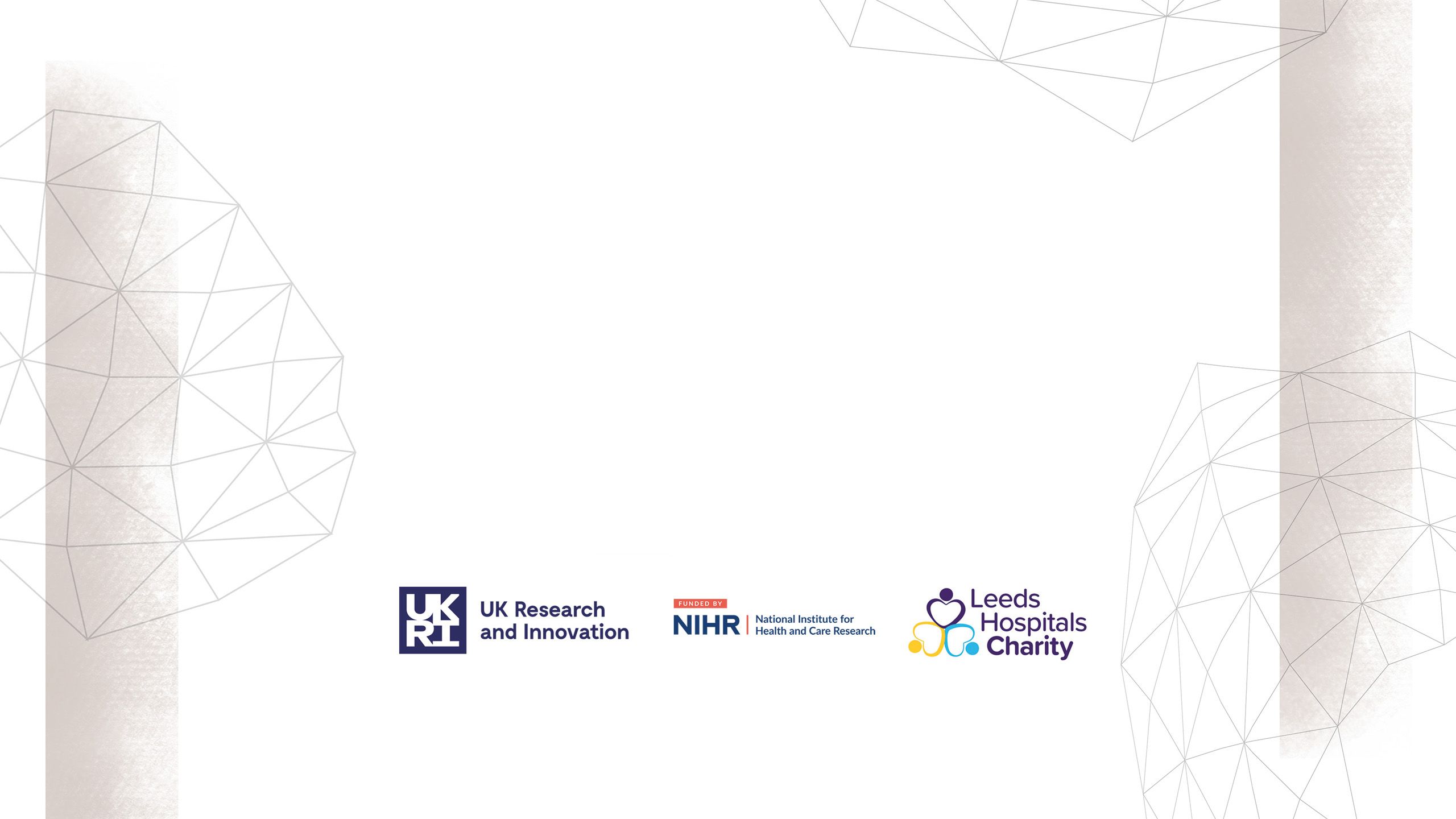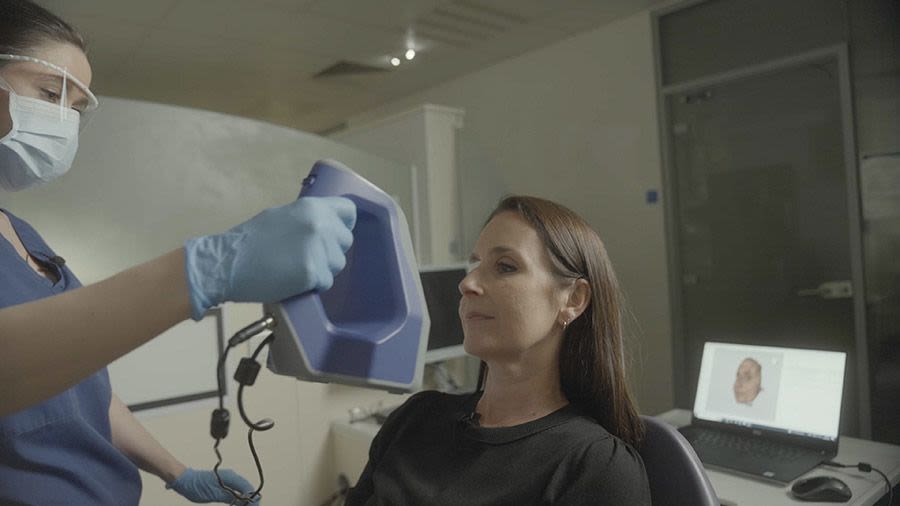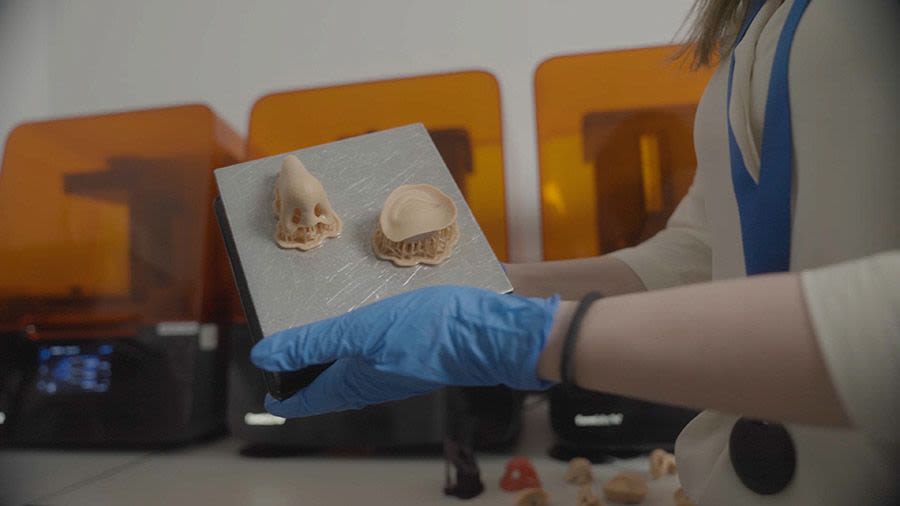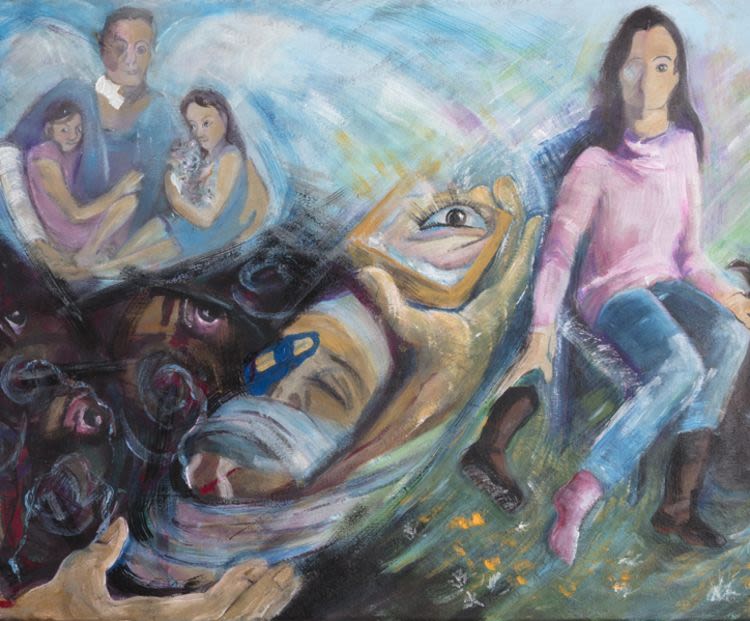I’m Still Me
Project aims

The I’m Still Me public engagement project
I’m Still Me is a collaborative art-science project co-produced by Patient and Public Involvement and Engagement (PPIE) contributors, healthcare professionals, researchers, artists, and public engagement practitioners. The project had three key aims:
- To share the lived experience of people who wear facial prostheses and raise awareness of the impact of head and neck cancer on their lives.
- To make science more accessible by bringing research findings out into the wider community through an arts-science approach to public engagement.
- To empower patients to become involved in research dissemination and highlight the valuable role of PPIE contributors.
Sharing the lived experience
Facial prostheses are bespoke removable silicone devices that emulate a facial part. People may wear facial prostheses for various reasons, for example following cancer treatment, facial trauma, or conditions from birth.
I’m Still Me has a particular focus on sharing the stories of people with visible facial differences resulting from the treatment of tumours and cancers in the head and neck region. Facial prostheses are made by highly trained members of staff called Maxillofacial Prosthetists. It takes multiple appointments and laboratory stages to make a prosthesis.
The facial scanning process
The facial scanning process
The key steps are taking a mould (also called an impression), sculpting a wax pattern, turning this into silicone, and adding fine detail. This process requires a lot of time, skill and resources. Prostheses need to be replaced regularly, usually on a six to 24-month basis, typically due to deterioration in colour, change in fit, or wear and tear.
There has traditionally been an under-representation of people with visible facial differences in public life and the media, including people with facial prostheses, who are an underserved group that contends with social stigma. I’m Still Me aims to create a platform for people to share their stories, raise awareness of what it is like to wear a facial prosthesis, and discuss important issues relating to face equality.
Bringing research findings to the wider community
In 2024, Rachael Jablonski completed her PhD at the University of Leeds. She led the IMPRESSeD study (IMproving facial PRosthesis construction with contactlESs Scanning and digital workflow), which evaluated the use of digital technology in this area. This research was co-developed with PPIE contributors who had lived experience of facial prostheses to ensure the project would address issues that were most important to patients.
These key issues were: replacing the uncomfortable and claustrophobic facial impressions, improving the aesthetic outcomes to restore their face closer to their pre-treatment appearance, and shortening the overall time of the rehabilitation process.
The IMPRESSeD study explored the use of digital workflows to help support or replace steps in the conventional manufacturing processes. Firstly, 3D facial scanning could offer a contactless and comfortable way of capturing the shape and texture of a patient’s face. Secondly, 3D Morphable Models (a leading-edge 3D face tracking and reconstruction technology) could help semi-automate the design process. Lastly, 3D printing prosthesis replicas may help reduce the time and stages needed.
During her PhD, Rachael conducted a series of studies that explored the use of digital manufacturing workflows from the perspectives of the patient, the healthcare provider, and the wider NHS. Rachael and the team undertook an in-depth review of previous research which demonstrated a clear need for further clinical studies in this area. A laboratory study was then carried out to compare different methods of designing facial prostheses, showing that using 3D Morphable Models seemed to provide a helpful starting point for design.
3D printed prosthesis replicas
3D printed prosthesis replicas
Next, a small clinical trial involving 15 patients was completed at Leeds Teaching Hospitals NHS Trust and Guy’s and St Thomas’ NHS Foundation Trust which provided participants with two different facial prostheses – one made by a digital workflow and one made through conventional techniques. Results from this early trial were encouraging and suggested bigger research projects could be beneficial.
Ten patients were then interviewed to explore their lived experience of different methods of manufacture, revealing that the majority preferred digital workflows over conventional processes. Finally, an early-stage health economic model was created to explore whether digital manufacturing of facial prostheses could be cost effective to the NHS.
Highlighting the valuable contributions of patients
The research and public engagement would not have been possible without the input and collaboration of numerous patient participants and PPIE contributors.
When starting to develop research ideas, Suzie and Brian offered valuable contributions by helping prioritise research needs, co-design the research studies, and inform the funding applications.
During IMPRESSeD, Robin and Peter were important members of the study’s independent advisory committee bringing their expertise to ensure the project remained patient centred. For dissemination and public engagement, Rebecca, Robin and Peter co-created I’m Still Me and helped consider different approaches and messages for a meaningful connection with the wider community.
In the UK, Maxillofacial Prosthetists typically have a background in science and technology but there is also a significant artistic component to their work; both elements were at the forefront of dissemination plans. An idea generation workshop was held with patients, artists, healthcare professionals and researchers to discuss how to bring together arts and science for this purpose.
A collection of artworks and written stories have been created with people who wear facial prostheses. The artworks include both traditional portraits and expressive pieces. The written narratives detail the patients’ stories of rehabilitation, messages about face equality, and reflections on being part of research. Maxillofacial Prosthetists and researchers also feature in these works, highlighting the clinical and academic interface.
Extract from Rebecca’s Cancer Journey by Jenny Mather (gouache on canvas)
Extract from Rebecca’s Cancer Journey by Jenny Mather (gouache on canvas)
I’m Still Me has been a collaborative endeavour which has brought together patients, artists, healthcare professionals, and researchers. Rachael Jablonski led the project as the final stage of her PhD.
Rebecca, Robin and Peter shaped the project themes and objectives. Sue Pavitt and Georgina Binnie-Wright brought a wealth of experience of delivering public engagement projects with different groups.
Sarah Morley coordinated the artist team comprising herself, Alison Murdoch, Brigid Brind, Jenny Mather and Tracy Ireland who captured patients’ distinctive characters and lived experiences. Georgina Binnie-Wright, Rachael Jablonski and Sue Pavitt captured the patient stories. Finally, Briony Thomas helped explore further opportunities for public engagement through an online exhibition.
Summary
The IMPRESSeD study and I’m Still Me show what can be achieved through co-production and a patient-centred approach. This would not have been possible without the hard work and dedication of the PPIE contributors and the patients who have shared their unique stories.
It is hoped that I’m Still Me shares messages of face equality and stimulates a reflection on how people should be valued through their own unique story, regardless of visible facial differences.
Further information and support
Additional information about the IMPRESSed study can be found on the University of Leeds IMPRESSeD study project page.
Changing Faces provides life-changing mental health, wellbeing and skin camouflage services. Changing Faces work to transform understanding and acceptance of visible difference, and campaign to reduce prejudice and discrimination.
Tell us what you think
We would value your views on the I’m Still Me project.
Please take a few moments to complete our feedback form.


